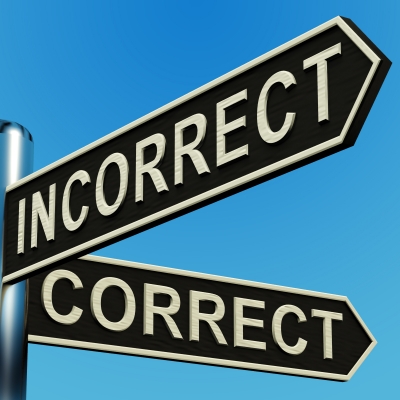Some things are deemed necessary by virtue of being human. Similarly, there are some English grammar mistakes which you commit by virtue of being Indian! So much so that these are not considered mistakes anymore, they are an accepted way of speaking.
There are two reasons for these mistakes:
- You grew up listening to others speak that way and imbibed the same
- You literally translate every word from your mother tongue while speaking in English.
I’ll address the most one common ones today.
- Incorrect: “I did not knew that!”
- Correct: “I did not know that!”
What most Indians do not know is that there is no need to use the second form of the verb with “did” as it is already in the past tense. Always use the first form.
- Incorrect: “I belong to Delhi. I am living in Kolkata.”
- Correct: “I belong to Delhi. I live in Kolkata.”
The “-ing” form is generally used to describe actions that are continuous. Like: “Priya is eating”- describes an action which is happening. Avoid using it otherwise.
- Incorrect: “This market is much more cheaper than the others”
- Correct: “This market is much cheaper than the others”
Often used for emphasis, the double comparative is grammatically incorrect and confusing as well. The changed form is enough in itself to illustrate the comparison.
- Incorrect: “Where do you put up?”
- Correct: “Where do you stay?”
This “sophisticated” way of asking one’s place of residence is in fact wrong.
- Incorrect: “Please revert back.”
- Correct: “Please revert.”
The word “back“ is implicit in “revert”. Using both makes the phrase redundant.
Here onwards I’m listing the phrases that are literal translations and NOT a part of English.
- Incorrect: “What’s your good name?”
- Correct: “What’s your name?”
Literal translation: “Aapka shubh naam?”
There is no good/bad name in English and though you just wanted to sound polite, using this phrase would be wrong.
- Incorrect: “You are Rahul?”
- Correct: “Are you Rahul?
Literal translation: “Tum Rahul ho?”
I’ve seen lots of Indians ask questions this way and it is wrong. Technically these are statements with a questioning tone. The way you frame a sentence decides whether it’s a question, not the tone!
- Incorrect: “He is my real brother.”
- Correct: “He is my brother.”
Literal translation: “Ye mera saga bhai hai”
The complexities of relationships in India have induced the usage of “real” in context of brothers and sisters. In English, saying you have a brother/sister is enough, all others are cousins.
- Incorrect: “He is like that only.”
- Correct: “He is like that.”
Literal translation: “Wo aisa hi hai”
The word “only” came to the rescue of all those who were distressed because of their inability to put greater emphasis on things when talking in English. But it is grammatically wrong and it’s best to avoid using it.
- Incorrect: “Myself”
- Correct: “My name is Ankit.”
Literal translation: “Main Ankit”
As I said, literal translations don’t work in English. So the next time you want to introduce yourself; use the latter and not the former.
The transition from our native language to the world’s language involves a little effort. Refrain from making these common mistakes and bring in the much required change!

